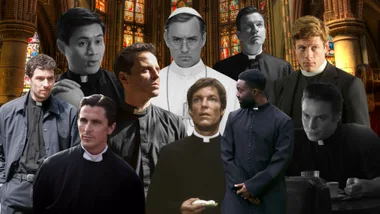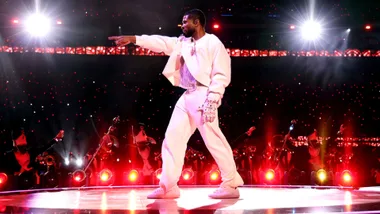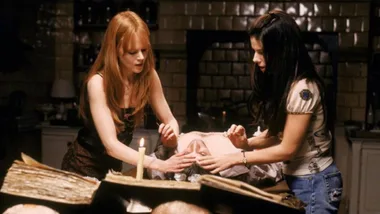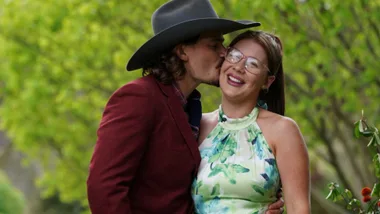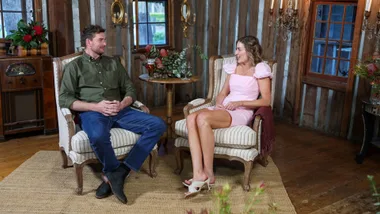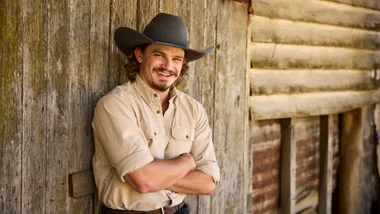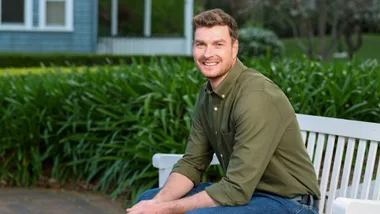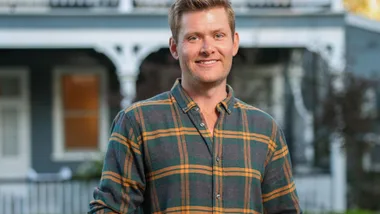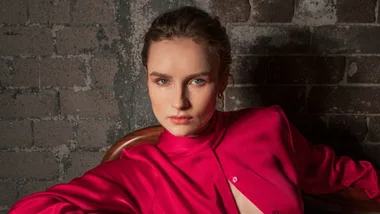There was a moment in the Oscars broadcast that made the marie claire office collectively sit a little straighter in our chairs. No, it wasn’t when our internet boyfriend Mark Ruffalo winked at the camera. It was when Pakistani filmmaker Sharmeen Obaid-Chinoy picked up her second Oscar and became the most decorated female director in the history of the event. (“I keep them by the TV,” she laughs, of her two Little Gold Men).
Obaid-Chinoy, 37, was collecting her second Oscar for The Girl In The River, her 40-minute documentary about honour killings in her native Pakistan. It follows Saba, a young woman who wanted to marry for love, and not enter into the arranged marriage her father and male relatives had organised on her behalf. For her defiance, her father shot her and left her for dead in a river. Saba miraculously survived, and Obaid-Chinoy’s film – which was produced by Newsweek’s Tina Brown – follows not only her recovery, but the pressure placed on Saba by her family to forgive her father and thus, in accordance to a loophole in Pakistani law, secure his release from prison.
This film, along with her first Oscar-winning documentary Saving Face, about women recovering from acid attacks in Pakistan, and her latest project Journey of a Thousand Miles: Peacekeepers with Emmy award-winning Indian-American director Geeta Gandbir, are all showing at this month’s Sydney Film Festival. We caught up with the two filmmakers on their whirlwind trip to Sydney to learn about this new project, and what Hollywood needs to do in order to redress its gender problem.
MARIE CLAIRE: Congratulations on the second Oscar, Sharmeen! What was going through your mind on stage at the ceremony?
SHARMEEN OBAID-CHINOY: I was thinking shit I won the second time! I was not expecting to win. I had taken my mother to the Academy Awards this year because I had a baby last year and I haven’t had any time off. When the time came for our category to be announced we were led to seats closer to the front, and I was wearing flip flops because I had taken off my high heels because I was just exhausted and [I was] a new mother. So my mother kept saying please put on your high heel shoes, and I kept saying, mum, I’m not going to win this year. If you looked at all the online predictions, they kept saying that mine, that I was the third possible film to win. So I thought it would be impossible.
MC: Louis CK, who presented the award, said some pretty hilarious things about documentary filmmakers.
SOC: He was so brilliant in summarising what documentary filmmakers go through. He said: “these people will never be millionaires. This award is going home in a Honda Civic.”
GEETA GANDBHIR: I actually own a Honda, which is really sad.
SOC: Exactly! And then he announced Mad Max as a joke. And then they announced my name and [afterwards] everyone was like, how were you bounding up those stairs? Well, I was in flip flops. I went and accepted my Oscar at the Academy Awards in flip flops, and my mother will never let me forget that.
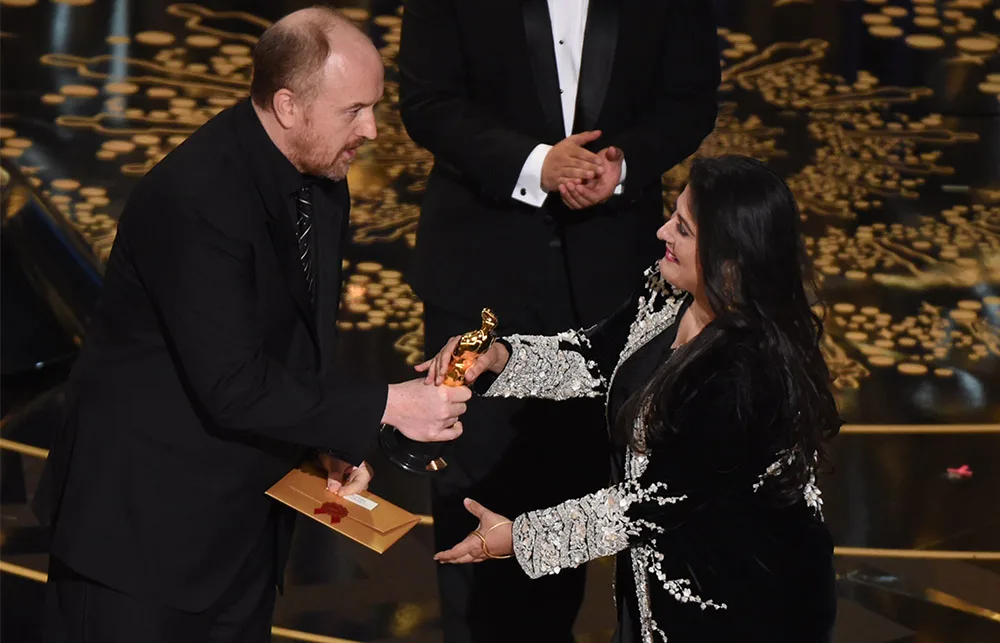
MC: You broke records that night and are now officially the most decorated Pakistani filmmaker in history. How does that feel?
SOC: I think that in a year where #OscarsSoWhite was trending, in a year where people were very critical of the number of women nominated, to be the only woman of colour to win all night… I’ve always said that the documentary films bring diversity to the Academy Awards and the fact that the issue of honour killings and what I was trying to do to got a global audience, is a really good feeling.
MC: You mentioned in your speech that the Prime Minister of Pakistan had seen your short and wanted to change the law around honour killings because of it. Has there been any progress on that front?
SOC: The law has passed through one house. It had been shelved for a little while but there have been a spate of honour killings in the past couple of weeks and is back on the agenda. So let’s see what happens.
MC: How does it feel knowing that your film has been able to affect social change?
SOC: Films around the world often strike a chord with people. It’s not like we don’t have activists and people working on these issues for a long time. I think the film has just aided the activists to get a face and need to this cause in front of the Prime Minister. It’s very gratifying to have work that hopefully at some point will change lives.
MC: In your speech, you said “this is what happens when determined women get together”. Your next film about female Muslim peacekeepers in Haiti, is another collaboration of determined women. What can you tell us about it?
GG: I read an article in the New York Times about female peacekeepers going from India to Liberia, and I didn’t even know that women from that part of the world were doing this kind of work. And then we found out about the Muslim Bangladeshi women that were going [to Haiti], and that story seemed even more interesting because the narrative of Muslim women in the media, particularly Western media, is so limited.
MC: What were the challenges putting that film together?
SOC: I don’t think we could have made this film had it not been a collaboration. It was a two year film, and raising money for a film like this is very hard. We were forever writing grants and pitching, throughout the process, and putting our own money into the film. To be honest, as filmmakers we have not been paid yet to make this film. One day soon!
GG: It’s a labour of love.
SOC: The glamorous life of a documentary filmmaker involves beautiful films that you make but sometimes you just don’t make anything off them.
MC: The past year has seen a lot of talk about the challenges faced by women in film. In your particularly field, there seems to be better representation, with almost double the amount of women working in documentary than in narrative film. Why do you think that is?
SOC: The entry threshold for a documentary filmmaker is much lower. For me, it’s a genre that I’m attracted to. I feel like I have always hustled to find a way to fund the films that I want to make, whether it’s writing grants, whether it’s finding private benefactors, whether it’s raising money through friends and family… I’ve always found that there is a way to tell the story.
GG: Also I would say in documentary filmmaking there is a tendency to commission a lot of films [and] the first person who will be called by the powers that be, is still white men. It’s white men.
MC: So what more needs to be done?
GG: I think there’s definitely a need [for] mandated diversity iniatives both for women and people of colour in filmmaking, across the board of narrative and documentary. The impetus and the onus has to be on the companies and studios that obviously have the money and have the power to commission and create these films and they have to really look at where and who the work is going to and who they’re hiring and look around them. There has to be a will to change the complexion of our field.

